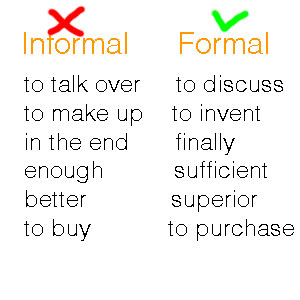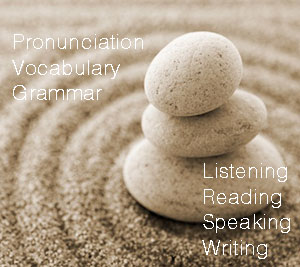 You have probably heard that IELTS essays should be written in “academic” or “formal” style. IELTS band descriptors do not give any specific guidelines regarding style, except the “format”. If the format is “inappropriate in places”, an essay will not get more than 5 for Task Response.
You have probably heard that IELTS essays should be written in “academic” or “formal” style. IELTS band descriptors do not give any specific guidelines regarding style, except the “format”. If the format is “inappropriate in places”, an essay will not get more than 5 for Task Response.
Different teachers give controversial advice on the format. Nonetheless, there are some universal tips that you can follow to increase the degree of formality in your essays.
1. Avoid “you”, “we” and related pronouns
When you use phrases like “our children” or “we need to…”, this makes your essay less formal. Even worse, some students can write something like: “you have to protect the planet”, which looks like an order given to the examiner, but not like an essay.
It is really easy to avoid such pronouns using subjects like “people need to”, “individuals need to”, “one needs to” or “a person needs to”.
2. Use impersonal structures
Some examples of such structures are: “it is argued that”, “it is claimed that”, “it would be easy for people to”. Passive voice helps to bring more formality to your essay and make it sound more academic.
3. Do not use contractions
Again, contractions are a sign of informal style. You need to form a habit to write “do not” or “should not” instead of “don’t” or “shouldn’t”.
4. Be careful with phrasal verbs and idioms
A vast majority of phrasal verbs and idioms belong to informal style. You need to choose one-word verbs wherever possible, e.g. “surrender” instead of “give in” or “postpone” instead of “put off”.
5. Never use slang
This point should be clear.
6. Choose words of Latin/French origin
English has a long history. Due to many conquests, the language often has two or more words meaning the same thing, some of which are of Anglo-Saxon origin, while others are of Latin and French origin. Your essay will be more formal, if you choose “assist” instead of “help” or “respiration” instead of “breathing”.
7. Avoid very simple words
Words like “good”, “bad”, “important” are neutral, but too simple to use repeatedly. If possible, go for more sophisticated synonyms such as “excellent”, “negative”, “significant”, etc.
You can try to write an essay and then check it against these seven tips, trying to change some words or sentences for more formal ones.
Now you can check your understanding by taking a quiz.
[WpProQuiz 46]
 Русский
Русский English
English



